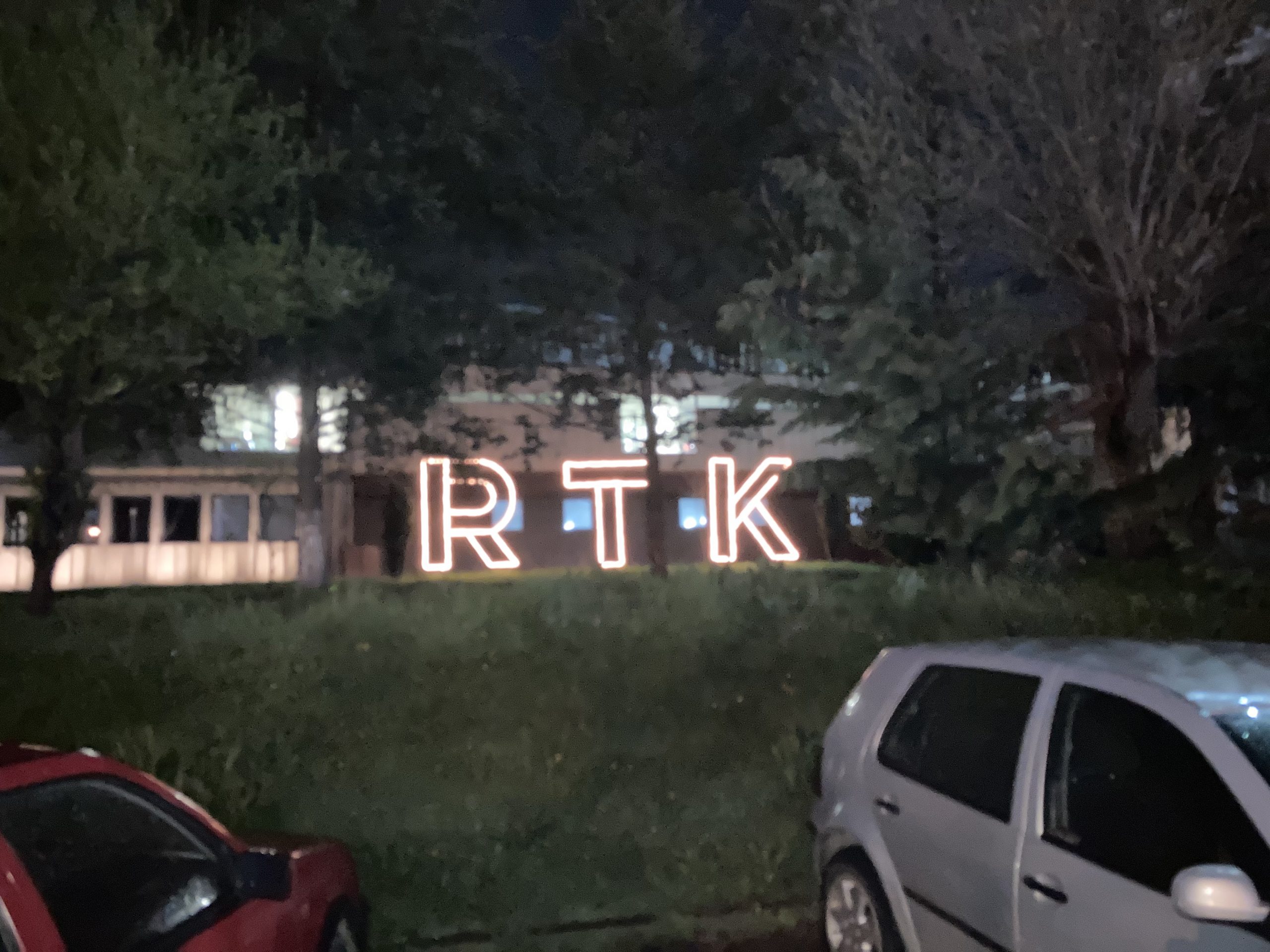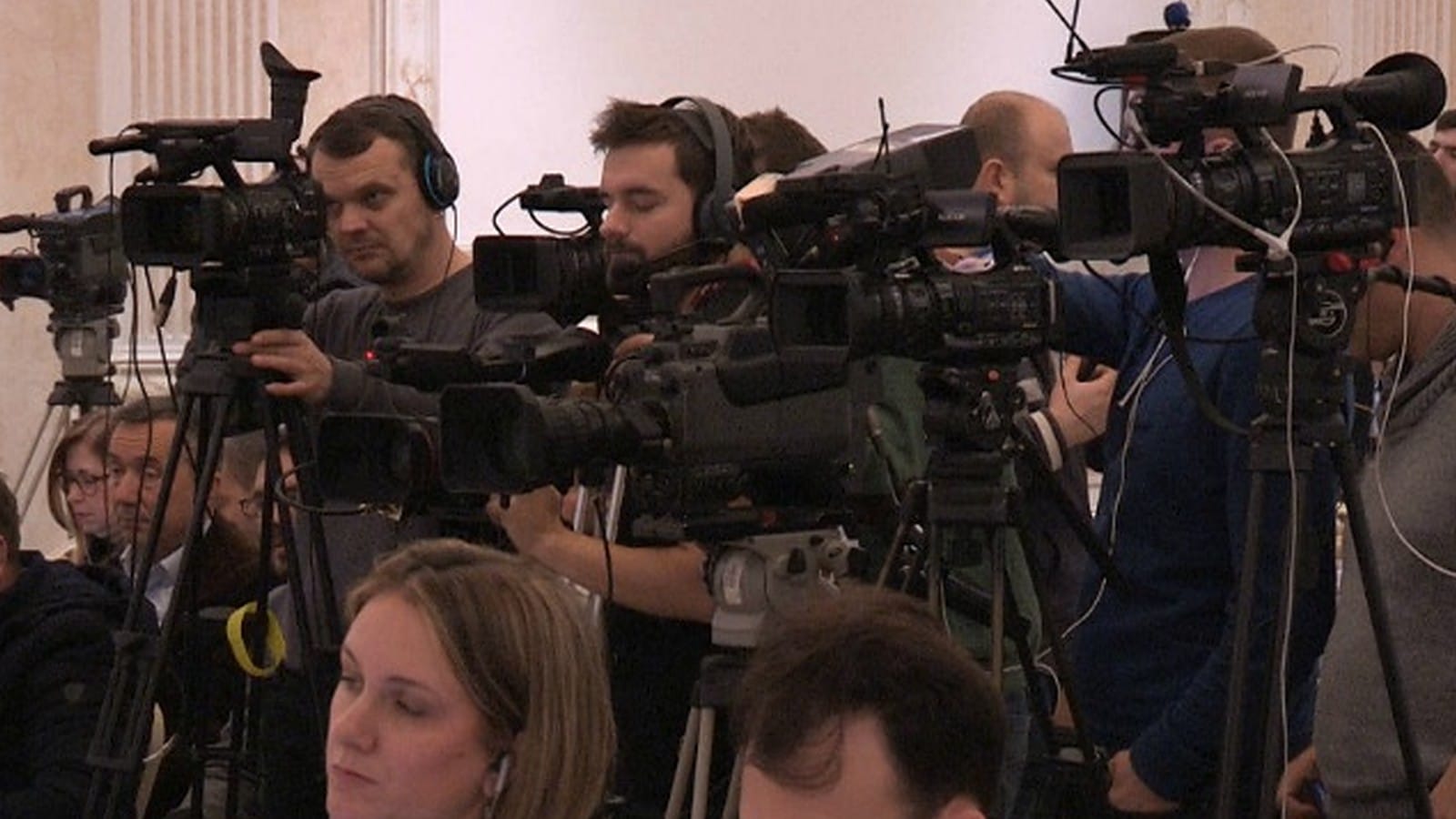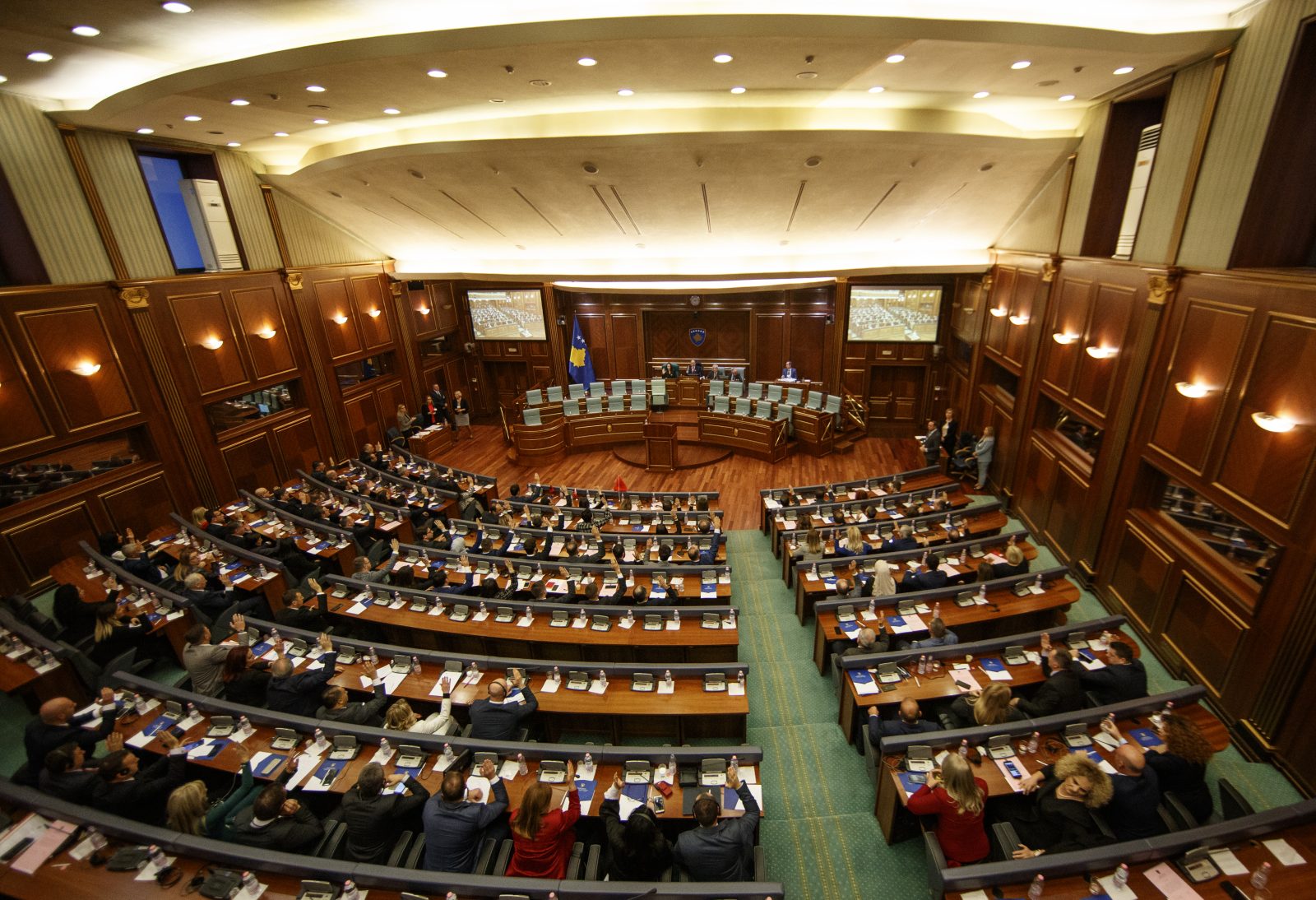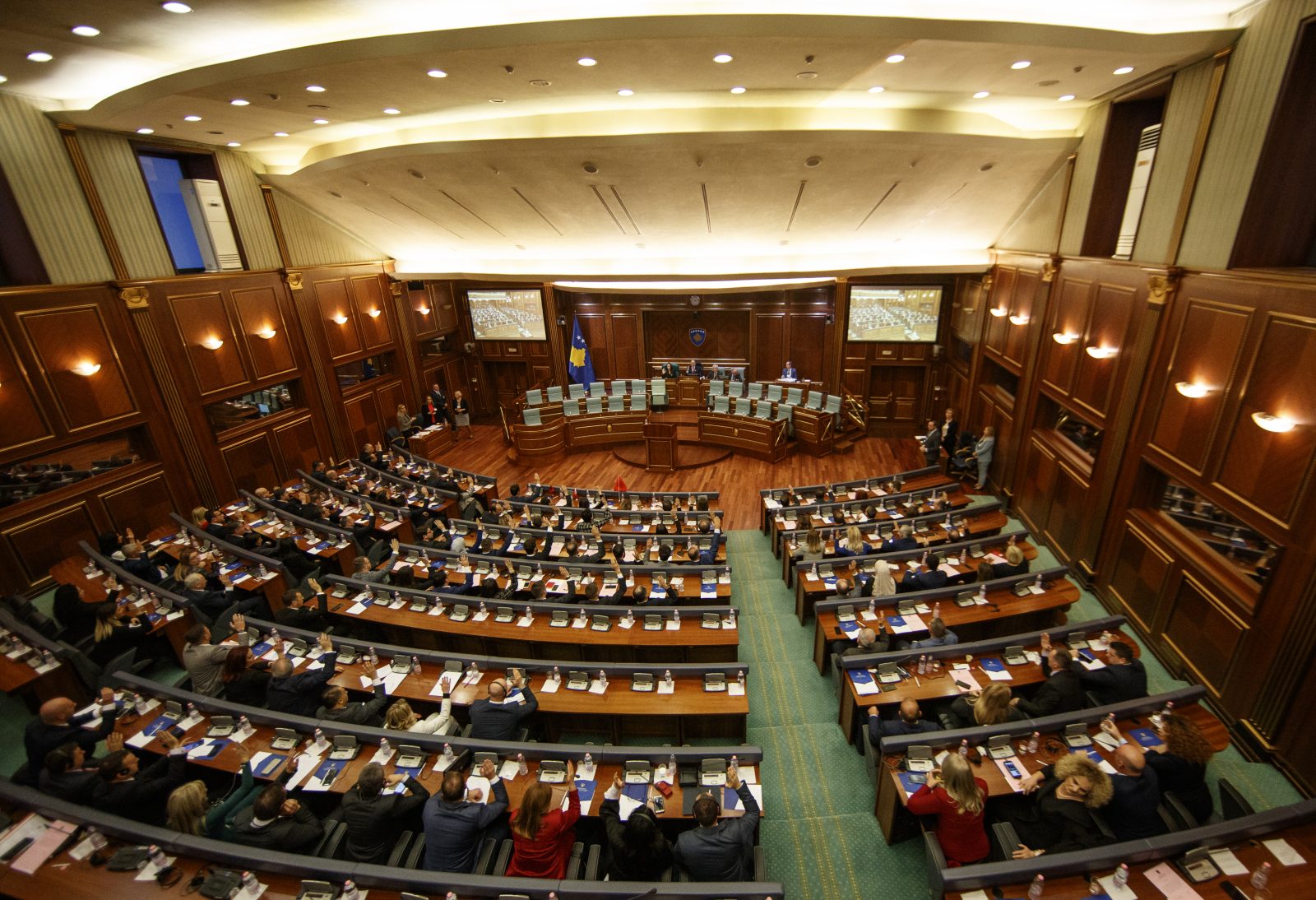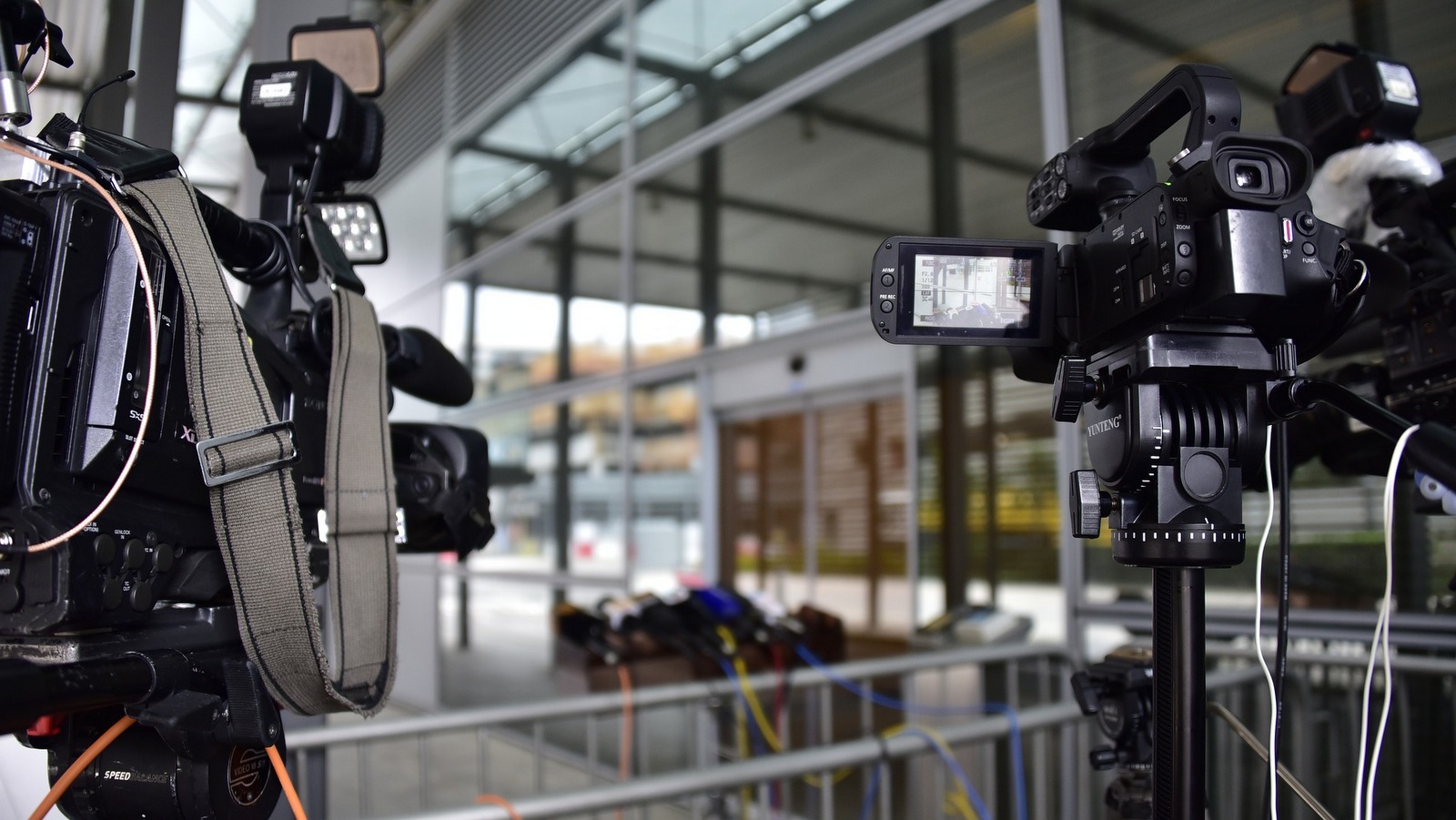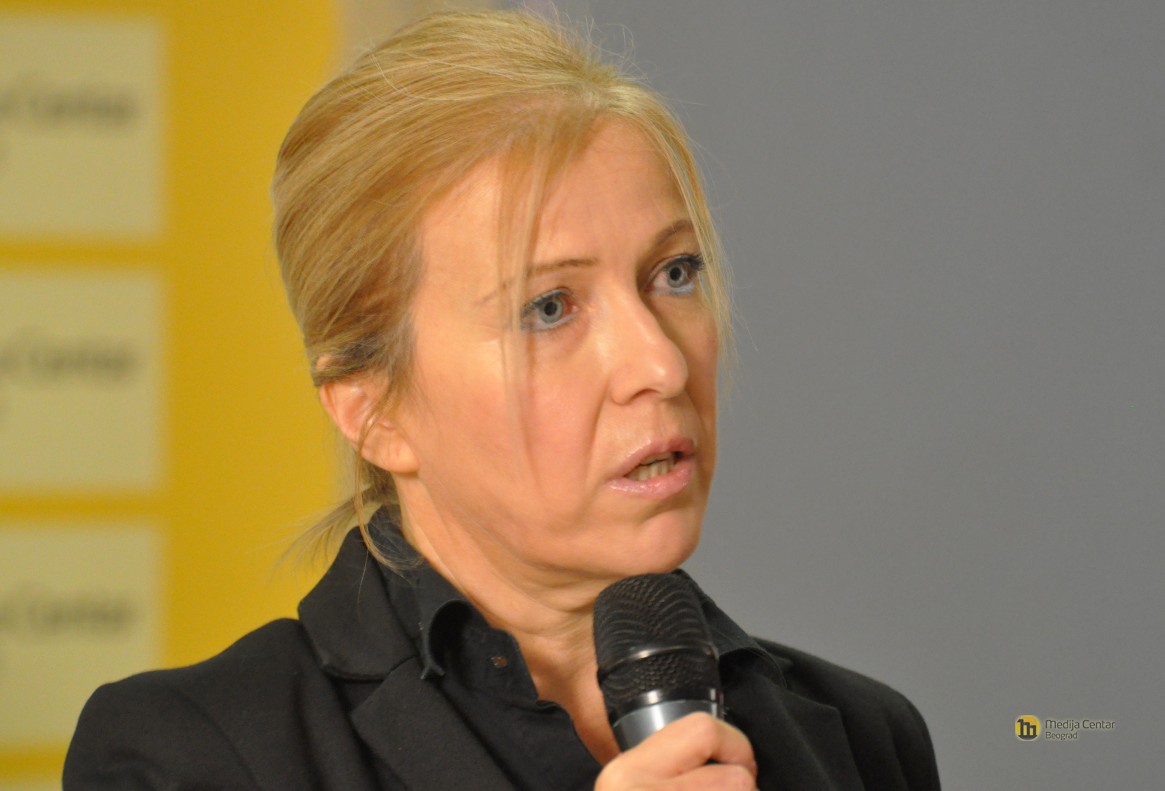Ilir Bytyci, member of the board of Kosovo’s public broadcaster, Radio Television of Kosovo, RTK, submitted his abrupt resignation on Thursday, claiming he was quitting to distance himself from “all the illegal actions and possible ethical code violations” occurring in RTK. He also cited an inability to “change things from the inside”.
Sali Bashota, head of the RTK board, followed by issuing a statement saying the resignation was illegal, as it should have been submitted three months in advance.
In recent months, BIRN has reported that while Bashota was a member of the board, his son-in-law was hired as a janitor in RTK, which is against the law, as members of the board are forbidden from employing relatives.
BIRN has also reported how family members of former Kosovo president Hashim Thaci were hired as a copyright expert, a camera operator and in the marketing department.
Allegations of nepotism

Kosovo public broadcaster, RTK, board reporting to the parliamentary commission. Photo: BIRN
In the last couple of months, Bashota and Ngadhnjim Kastrati, RTK’s General Director, were grilled about these employments by two parliamentary commissions that oversee the RTK.
Bashota admitted that his son-in-law had been hired, while Kastrati defended the employment of Thaci family members, claiming that MPs should not interfere in recruitment processes.
However, citing BIRN’s investigations and other violations, Fadil Hoxha, head of RTK’s Independent Workers’ Union, met Glauk Konjufca, speaker of parliament, on May 6, and submitted a request for parliament, as the broadcaster’s oversight body, to dismiss the board.
Finally, on Tuesday, the Parliamentary Committee on Public Administration, Local Government, Media and Regional Development voted to dismiss the board, following a recommendation from the Parliamentary Committee on Budget, Labour and Transfers.
This sets the stage for parliament to dismiss the entire board of RTK in a session due next week.
Valon Ramadani, member of the committee from the ruling Vetevendosje party, on Tuesday said that RTK needs change.
“RTK needs reform and more accountability. The state budget allocates it around 15 million euros a year, and we don’t know where this money is being spent,” Ramadani said.
He was referring to claims that management has not allowed the National Audit Office to audit RTK, although it is common practice for the national auditor to audit public institutions.
Although RTK refused auditing in the past, on Tuesday the board said it had informed the National Audit Office that it was ready for a financial audit, while citing “legal limitations” over whether the broadcaster should be subject to such a process.
Armend Muja, a Vetevendosje MP, told BIRN that they recommended the dismissal of the board because of “their professional inability and continuous failure to implement their duties”.
Doarsa Kicaj, head of the media committee, read out some of the recommendations from the budget committee, which listed a number of issues with the board.
Kicaj highlighted the budget committee’s finding that RTK’s management had refused to be audited, and the failure to comply with procurement procedures and compile a legally required long-term strategy.
“If all these issues are not important to you, it’s painful,” Kicaj said, adding that the broadcaster needs to be accountable for receiving millions of euros of taxpayers’ money a year.
However, representatives of the opposition parties in the commissions, the Democratic Party of Kosovo, PDK, the Democratic League for Kosovo, LDK, and Alliance for the Future of Kosovo, AAK, are either objecting or absenting themselves from the debate about the board’s dismissal.
One of PDK’s representatives on the budget committee, Mergim Lushtaku, said the findings of the committee were not enough evidence to initiate the dismissal of the board.
Lushtaku conceded that RTK was not in good shape but insisted that the board should not be dismissed for what he described as political reasons.
The LDK representative on the committee, Agim Veliu, recently sacked as head of the LDK branch in Podujevë, where he was mayor, claimed that sacking the board was a political act, and an attempt to capture a public media that should be independent.
The day the parliamentary commission approved the request to dismiss the RTK board, Enver Hoxhaj, acting head of the biggest opposition party, the PDK, accused Vetevendosje and Prime Minister Albin Kurti of trying to control the media and public opinion.
“What we in the PDK have warned about is happening; two things characterise this government: political fraud in the absence of a proper government programme, and authoritarianism as the only way they know,” Hoxhaj posted on Facebook. The board has also said the proposed dismissal is a violation of the Law on RTK.
“The political fight against this media, constructed over ‘alternative facts’, is unjust and is aimed at instrumentalising the public broadcaster for political reasons,” the board said in its reaction on the day the recommendation for its dismissal was voted.
“RTK Board has been and remains open to provide answers to parliament as RTK’s founder on any issue related to its scope, under any situation and circumstances,” it added.
Warnings of possible politicisation
 Illustration. Photo: BIRN/ Urim Krasniqi
Illustration. Photo: BIRN/ Urim Krasniqi
A media lawyer, Flutura Kusari, told BIRN that she welcomes the initiative to dismiss the board.
“The misuses that have happened over the decades should end. It is important that those responsible for destruction or allowing the regress of RTK to be held accountable,” Kusari said.
But, besides the dismissal, Kusari said the way the governing coalition handles the situation afterwards is important, and future board members should not be politically affiliated.
“What should happen next is that Vetevendosje and other government coalition partners must immediately start the process of selecting new members and that those elected must not be political figures. They should not elect anyone who has supported Vetevendosje, as it is very important that the election of a new board is not questioned by anyone,” Kusari added.
Arta Berisha, a media expert, says that in recent years RTK has lost its primacy in Kosovo’s media scene.
“With its budget and public responsibility, which it enjoys by law, RTK should have been in front of the changes that came as a result of the internet … and not remain hostage to those who have gone too far, publishing misleading and disinformation content,” he said.
Vulnerable to government pressure
In its 2020 Progress Report, the European Commission ruled that Kosovo’s public broadcaster “remains vulnerable to political pressure and influence”.
“To date, the broadcaster remains directly state-funded, with its budget determined annually by the Assembly [parliament]. This undermines its independence, weakens its long-term sustainability and leaves it prone to political influence,” the report said.
RTK was established by the UN provisional administration in Kosovo, UNMIK, in September 1999.
Initially, it was financed through compulsory monthly payments, with each family owning a TV paying 3.5 euros via their electricity bill.
In 2009, Kosovo’s Constitutional Court suspended this way of financing. Pending an amendment to the law, RTK has been financed directly by the state budget since.
In 2012, four years after Kosovo declared independence from Serbia, parliament approved a law on RTK but it has not resolved the issue of its property.
In 2016, the broadcaster faced an eviction ultimatum by the Kosovo Agency of Privatisation for illegally occupying the premises of the now-defunct Radio Television of Pristina, RTP. However, the ultimatum was never applied.
“The current board has not proposed any strategy to ensure adequate, sustainable and transparent financing,” the Commission wrote in its justification for the board’s dismissal.
Often accused of over-employment, in 2020 RTK reported 1,024 employees including 806 with regular contracts and 216 others working part time as journalists, actors or correspondents. The report says that 68.5 percent of RTK’s budget goes on salaries.
Media expert Arta Berisha says it is important for RTK to have professionals in its ranks while politics should not interfere in its job.
“RTK should have autonomy and function in line with professional norms, oriented toward ethics and in the service of the public,” Berisha said.
Flutura Kusari meanwhile thinks that RTK would have a future if those responsible for “its destruction” face justice.
“The motion to dismiss the board is only the first step which should be followed by a parliamentary and criminal inquiry. There is no future if those who have taken RTK to the brink of destruction are not held accountable,” Kusari concluded.
